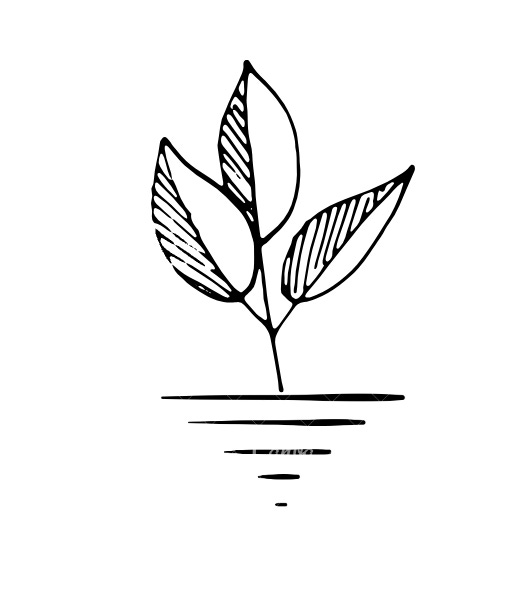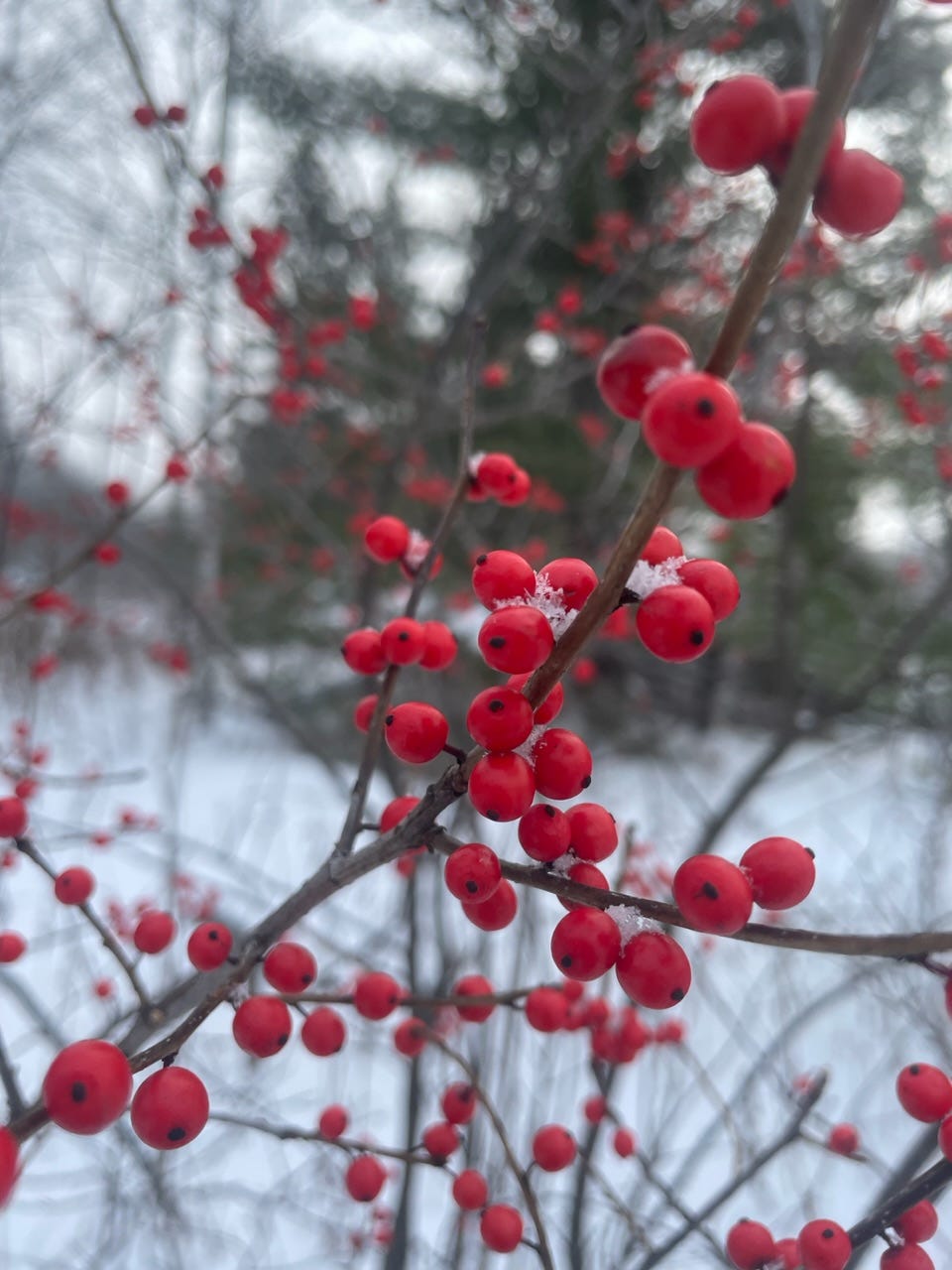Deep Rest: How Winter Supports Healing and Renewal
Aligning with nature’s rhythms for better sleep
Welcome to the Michelle Seguin MD newsletter. I’m Dr. Michelle—thank you for being a part of this community! Today, we’ll explore the science of sleep, practical strategies for better rest, and how we can embrace this season of restoration together.
Hello friends,
As the winter solstice approaches, marking the longest night of the year, we find ourselves steeped in darkness. This season invites us to mirror nature’s rhythms: to pause, rest, and embrace the quiet stillness. Darkness isn’t something to resist; it’s essential for restoration, signaling the body to slow down and prepare for deep, healing sleep.
Winter’s shorter days and longer nights are a natural cue to shift our pace, yet in a culture that values productivity over rest, it can feel unnatural to embrace slowing down. However, sleep and rest during this time are not indulgences; they’re necessities. They offer our bodies and minds a chance to heal, repair, and realign. Today, we’ll explore how aligning with winter’s rhythms and the science of rest can enhance your well-being during this restorative season.
With gratitude,
Dr. Michelle
The Science of Rest: Why It’s Critical for Health
At the heart of our ability to rest and heal is the parasympathetic nervous system, often referred to as the “rest-and-digest” system. This vital part of our biology counterbalances the stress-driven “fight-or-flight” response, promoting a state of relaxation and repair.
In my practice, I discuss the importance of activating this system with every patient in nearly every visit—it’s that important! Whether it’s through quality sleep, mindfulness, breath work, or even taking the time to chew our food slowly, prioritizing parasympathetic balance is foundational for health.
When the parasympathetic system is activated, the body:
Lowers heart rate and blood pressure.
Enhances digestion and nutrient absorption.
Supports cellular repair and detoxification.
Boosts immune function by increasing the activity of T-cells and natural killer cells.
In contrast, chronic stress and overstimulation can lead to burnout, weakened immunity, and disrupted hormone regulation. Resting allows the body to recalibrate, providing the foundation for physical and mental resilience.
The Science of Sleep: Why It Matters and How to Improve It
Sleep is one of the most powerful acts of restoration we can offer our bodies, especially during winter’s darker, quieter months. While rest and the parasympathetic nervous system create the conditions for healing, it’s during sleep that much of this work happens.
Why Sleep is Critical for Health:
Cellular Repair: During deep sleep, the body repairs tissues, balances hormones, and eliminates toxins, including those cleared by the brain’s glymphatic system.
Immune Function: Sleep enhances the production of cytokines, proteins that help fight infections and inflammation.
Emotional Regulation: REM sleep consolidates memories and processes emotions, supporting mental clarity and emotional stability.
Metabolic Health: Insufficient sleep can disrupt insulin sensitivity, increasing the risk of metabolic disorders like diabetes and obesity.
Recommended Sleep Guidelines:
According to the National Sleep Foundation, adults should aim for 7–9 hours of sleep per night. However, quality matters as much as quantity. Restorative sleep hinges on good sleep hygiene and alignment with your body’s natural rhythms.
Simple Strategies for Better Sleep
Stick to a Consistent Sleep Schedule:
Go to bed and wake up at the same time every day—even on weekends. This consistency helps regulate your body’s internal clock, making it easier to fall asleep and wake up refreshed.Create a Sleep-Conducive Environment:
Cool, Dark, and Quiet: Keep your bedroom at a comfortable, slightly cool temperature. Use blackout curtains or an eye mask to eliminate light and earplugs or a white noise machine to reduce noise.
Comfortable Bedding: Invest in a supportive mattress and cozy blankets to create an inviting sleep environment.
Limit Evening Stimulants:
Avoid caffeine after noon and heavy meals at least 4 hours before bed. Both can disrupt your ability to fall asleep.
Limit alcohol consumption, as it can interfere with sleep cycles.
Dim the Lights Before Bed:
Reduce exposure to artificial light—especially blue light from screens—at least an hour before bedtime. This helps increase melatonin production, signaling your body that it’s time to wind down.Establish a Relaxing Bedtime Routine:
Unwind with calming activities like reading, journaling, gentle stretches, or a warm bath.
Try sipping a cup of herbal tea, such as chamomile or lemon balm, to signal your body that it’s time to relax.
Incorporate Sauna Sessions:
A sauna can help relax muscles, promote circulation, and prepare the body for sleep. Research shows that sauna use may reduce stress hormones and improve sleep quality. (FYI: Shoutout to our friends at Takka Sauna who were featured in NYT’s “In Search of Sauna Nirvana Around Lake Superior” this week!!)
Practice Yoga Nidra:
Yoga Nidra, or “yogic sleep,” is a guided meditation practice designed to bring you into a deeply relaxed state. This practice can reduce stress and prepare the body for restorative sleep. Many guided Yoga Nidra meditations are available online and through apps like Insight Timer. I’ve enjoyed online classes with Cindy at Spring Brook Holistic Wellness.
Morning Light Exposure:
Get outside or near a bright window early in the day. Morning light exposure helps regulate your circadian rhythm and promotes better sleep at night.
Thoughts on Sleep Trackers
Sleep trackers, like wearable devices or apps, are popular tools for monitoring sleep patterns. They can provide helpful insights into your habits, such as sleep duration and consistency, and serve as a motivator to prioritize sleep.
However, it’s important to use these tools mindfully. Sleep trackers rely on algorithms to estimate sleep stages and patterns, and their accuracy can vary. Additionally, focusing too much on sleep data can lead to anxiety about achieving “perfect sleep,” a phenomenon known as orthosomnia, which ironically can disrupt sleep.
My Advice on Using Sleep Trackers:
Use Them as a Tool, Not a Rule: Sleep trackers can highlight trends, but they shouldn’t replace your intuition about how well-rested you feel.
Focus on the Big Picture: Pay more attention to patterns over time rather than fixating on individual nights of data.
Know When to Step Back: If tracking your sleep becomes a source of stress or obsession, consider taking a break from the device and focusing on how your body feels instead.
Ultimately, sleep trackers are just one piece of the puzzle. Trusting your body’s signals and prioritizing sleep hygiene will always remain the most reliable path to restful, restorative sleep. Personally, I like using my Oura ring for health trends and incorporate breaks throughout the year—mostly spontaneous (…oh I forgot to charge my ring again, maybe it’s time to leave it off for a while). I spoke to Bloomberg Pursuits about the topic of sleep wearables in 2023, and you can find the article here.
In Closing
Winter reminds us that rest isn’t a luxury—it’s a necessity. By aligning with the season’s slower rhythms, we create space for healing, restoration, and renewal.
What would it look like to fully embrace winter’s invitation to rest? How might slowing down become your most powerful act of self-care this season?
I’d love to hear your thoughts—reply to this email or share your reflections in the comments.
With love and care,
Dr. Michelle
Physician, Gardener, Home Cook, and Forever Curious
P.S. If you’re enjoying this newsletter, please consider sharing it with a home cook, gardener, or nature lover in your life. Together, we can inspire more people to embrace the beauty of seasonal living.
Here are my most recent Substack sharings:
The Thread of Winter: On Knitting, Compassion, and the Quiet Return of Light
A Piece of My Mind - November: What I'm cooking, reading, and practicing for winter wellness
A Nourishing Holiday Table for You: Plus, a heartfelt giveaway for one reader!






Thank you for sharing so many great resources!!
Have you read the book 'Wintering' By Katherine May? It's a lovely reminder to slow down and rest and embrace your inner 'winter'. I read it after some family trauma this fall - my instinct is to go harder/faster with all the things and this was a beautiful reminder to do the opposite. Lots of sauna sessions with thoughtful books, going to bed early, cuddling my girls and dog, staring at the snow, staying in jammies far longer than I usually do. I love your reminder to take breaks from wearable devices, as a fitness 'nut' i'm pretty ride-or-die about my Oura stats, but I think a healthy break would be good for me. Thanks for the nudge.